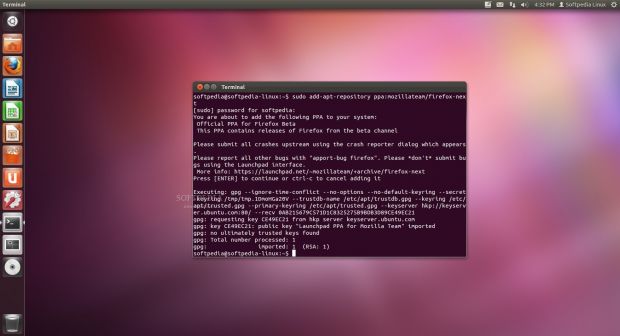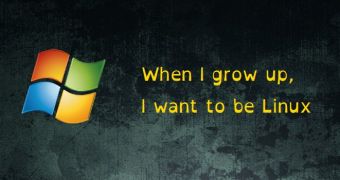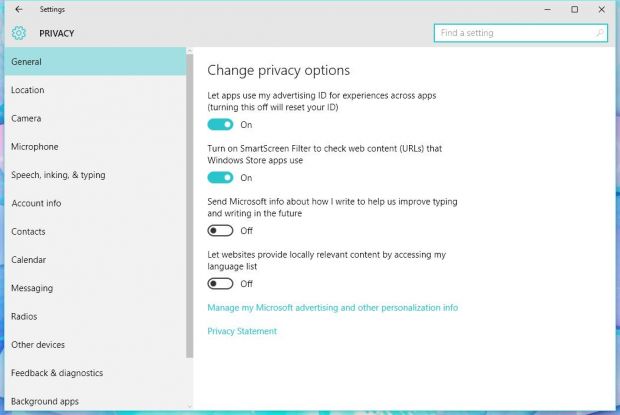Windows 10 has a privacy issue, no matter if Microsoft agrees with this or not, but it’s pretty clear that the existing configuration of the operating system isn’t quite what users have been expecting when they decided to upgrade.
If you install Windows 10 and use it as is, the operating system scans for, collects, and sends a shocking amount of information from your computer to Microsoft, including browsing history, spoken voice commands for Cortana, some typed words, and your location, which, let’s be honest, isn’t quite the thing you’d like your operating system to do.
With Windows 10 criticism all over the place these days, some of those who once considered the upgrade to the new operating system are now taking into account a switch to Linux, in search of better security, privacy, and performance.
So the question that comes to everyone’s mind right now is as simple as it could be: is it worth moving to Linux, given Windows 10’s privacy issue? Is Linux a worthy alternative to Windows 10 right now?
Depending on whom you ask, you might get different answers. But the answer is no.
Windows 10’s privacy issue doesn’t change anything
Even if Windows has a privacy problem, this doesn’t make Linux better, it just makes it more appealing to those who are disappointed with Microsoft’s approach in the new OS.
This means that all the problems that you might experience when switching from Windows to Linux are still there no matter what version of Microsoft’s software you’re running right now, but truth is, this is the moment when most people start thinking about jumping ship. And they’re right. Microsoft doesn’t seem to treat this problem correctly and it could soon backfire.
The issue with Windows 10 isn’t necessarily the fact that it includes services that can track users and collect their data, but the fact that it does so without actually making people aware of it.
Sure, there’s a privacy policy that’s displayed when you install the OS, but seriously, who reads that? Who reads 47 pages of lawyer talk before actually installing something?
Microsoft has always defended its Windows 10 approach by saying that users are always in full control of what they share, when they share. Options in the Settings screen let them disable what data they want to provide Microsoft with, so if information leaves your computer, it’s only because you agree with it.
“No matter the distro, the apps, the name, and the purpose, Linux is still not as user-friendly as Windows. Be it 10 or not.”
The correct approach would have been to keep these settings turned off and encourage users to enable them, and not the other way around. This way, Microsoft would have avoided the privacy saga in Windows 10, and everyone would have been happy now. So the problem isn’t data collection, but secret data collection.
But again, this doesn’t mean that Windows 10 users should now go to Linux. Not only are there ways to deal with the Windows 10 privacy issue, but Linux still has its own setbacks, and beginners will clearly discover them all the hard way.
First and foremost, Linux is not as user-friendly as Windows is, no matter who, what, and when says it. Windows is currently the easiest-to-use OS out there, and the only one that gets closer to it is Apple’s OS X, simply because it has a UI that’s designed this way. Under the hood, OS X and Linux might be similar, but the way Apple improved its own platform clearly makes a difference.
For beginners, switching to Linux could be a nightmare, and the number of cities across the world that have already done that and are now considering going back to Windows is living proof. Linux has greatly improved in terms of usability in the last couple of years, and it’s easier than ever to install apps and set up hardware, but in case something goes wrong, you’re in trouble. That’s why cities that did that had to invest in professional training for employees, compatible software, and other technologies, just to make sure that the migration proved to be effective.
The terminal is still the go-to option for experienced users and it’s indeed the best way to work with Linux, but imagine that, for beginners, searching Google all day long for commands to perform various tasks isn’t quite the thing they’d do with a new OS. And it’s not all about apps. Overall, Linux is still far behind Windows, and although there are distros supposed to look and feel more like Microsoft’s OS, there still is a big different. Some of your favorite apps still do not run on Linux, no matter if you use Wine or not, gaming is far from being perfect, and some hardware takes forever to set up.

Wondering why there are so many Linux distributions that try to mimic Windows' look? It's because they're all trying to offer the familiar interface everyone knows, but no matter how hard they try, Windows still feels like home.
The conclusion here is that beginners moving from Windows to Linux might really regret it and miss the familiarity of the desktop when jumping ship. Professionals? This is where the other part of the story comes in.
Tech-savvy users can find ways to protect their privacy
So Windows 10 has a privacy issue and it collects user data that is then sent to Microsoft. Professionals, just because they’re more tech savvy than others, can look into the problem and find ways to block that. There are already several ways to stop Windows 10 from phoning home, including editing the HOSTS file or third-party apps that can take care of everything, so with some work, Windows 10 becomes just as privacy-obsessed as its predecessors were.
Microsoft says that users shouldn’t turn to apps or tricks that affect the system configuration and explains that any change in this regard could have an impact on performance in the future. But even if problems indeed happen to show up, tech-savvy users can easily deal with them.
And the conclusion here? Experienced users have the know-how to stop Windows 10 from collecting their information and will make the new OS just as good as its predecessors in terms of privacy. And the improvements that Microsoft brought to Windows 10 make it clearly superior.
Linux has improved a lot, but Windows is still the better choice
Working, gaming, and entertainment. These are the three areas where Linux has improved a lot lately, but despite all these enhancements, Windows still excels at everything. Linux is now easier to use, but not when compared to Windows, but when put against its older versions.
And Windows 10 brings new features specifically added to make sure that it continues to lead the field against the other desktop platforms, be it Linux or OS X.
Linux fans will claim that simply saying that Windows is better is a bad joke. Many will say that Windows 10 is a big junk of spyware and that Linux respects users’ privacy. Others will tell me that this article is biased and Linux has improved much more than Windows lately, so it’s better, faster, more secure, more reliable, it can cook, drive, fly planes, and shut the door when we leave our homes.
Hardcore Linux users have always said this thing. And again, the privacy issue in Windows 10 doesn’t change anything as long as you consider your options.
So if you really want to move from Windows to Linux, just don’t blame the privacy issue. There are many things to blame as far as Windows 10 is concerned, but privacy just can’t be one of them.

 14 DAY TRIAL //
14 DAY TRIAL // 


